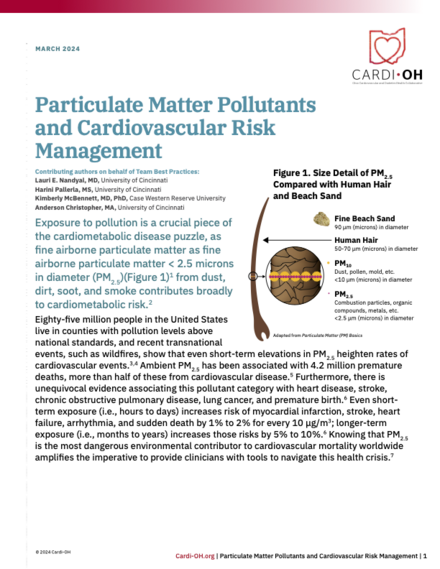Summary
Fine airborne particulate matter less than 2.5 microns in diameter (PM2.5) is associated with higher risk of cardiovascular events and other chronic conditions, even at short-term exposure. This review provides health care teams with information about the evidence on particle pollution exposure’s impact on health and how to identify at-risk patients in order to reduce their air pollution exposure to lower cardiovascular risk.

Featured Authors

Lauri E. Nandyal, MD
University of Cincinnati

Kimberly McBennett, MD, PhD
Case Western Reserve University

Harini Pallerla, MS
University of Cincinnati

Anderson Christopher, MA
University of Cincinnati
